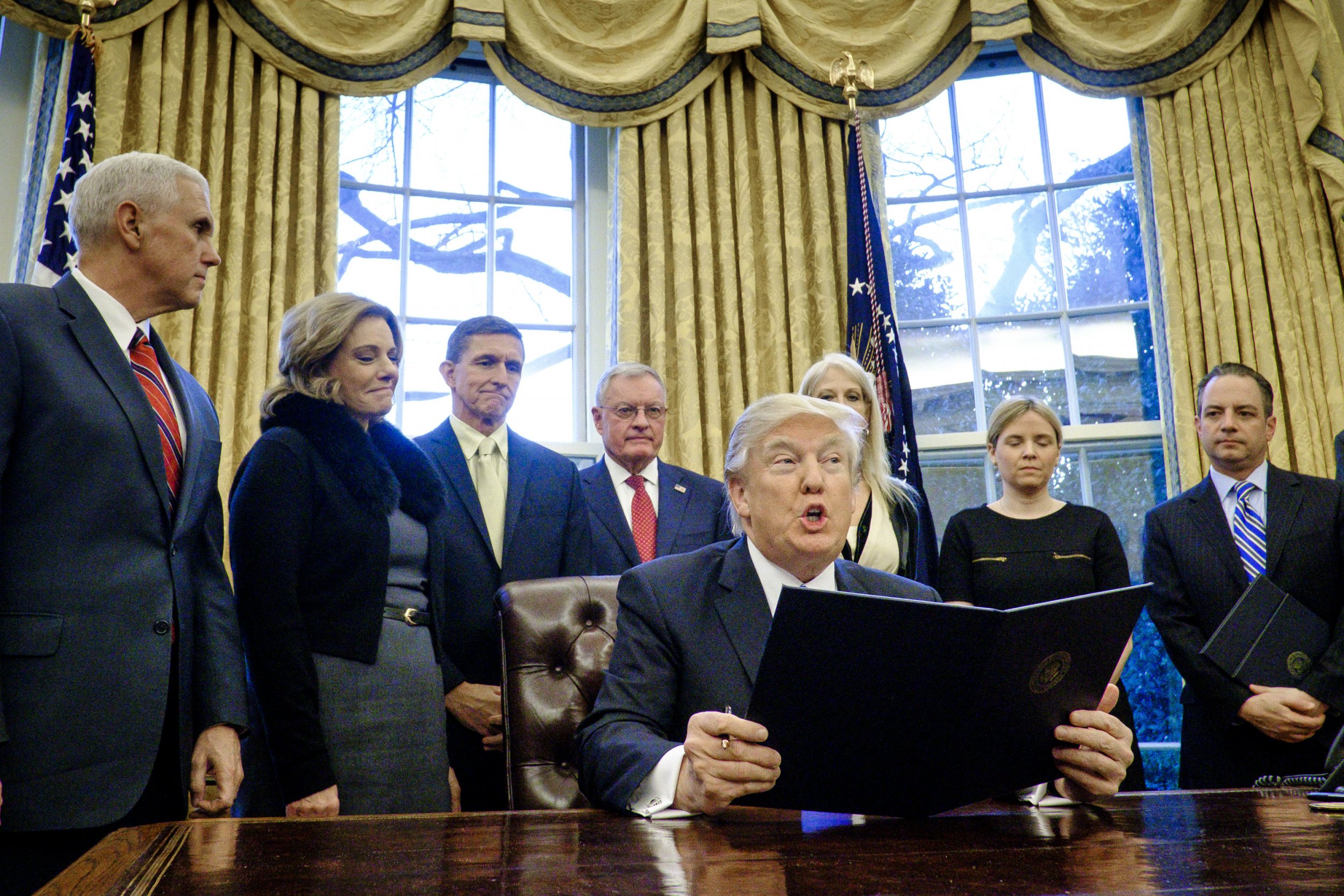
The recent decision by President Donald Trump to ban the citizens of seven Muslim-majority countries from entering the United States could have dire consequences for the coalition fighting ISIS and Al-Qaeda. In effect, it could help generate new momentum for the jihadi movement that has stagnated during this period. Al-Qaeda remains isolated in certain areas (e.g., Yemen), while ISIS has lost territory in Libya, Syria and Iraq.
It is clear that Islamist militants preferred Trump over Clinton for one simple reason: His Islamophobic rhetoric can be a useful propaganda tool for recruiting young Muslims. It's not clear if they are right, but the travel ban seems to confirm this. Data from jihadi discussion forums indicate that supporters of ISIS viewed the decision favorably. They understand perfectly well that anti-Muslim prejudice could reinforce their narrative that Islam is under attack by the West. ISIS and Al-Qaeda have long embraced the clash of civilizations thesis because it can easily incite emotions of fear, anger and revenge. The ban, they hope, will fuel anti-American sentiments and create more tension with the Muslim world. It could even push some Muslims to join jihadi groups in a kind of self-fulfilling prophecy.
Related: Trump's Travel Ban and Obama's Visa Restrictions Are Not The Same
It is useful to remember that President Trump's decision comes at a crucial moment for the anti-ISIS coalition. It has been more than three months since Iraqi government troops, with U.S. air support, started an operation to liberate Mosul. Although the group has maintained control over large parts of the city, it is only a matter of time before ISIS loses the battle. Yet the forthcoming fall of Mosul would not mean the end of ISIS. The group has developed grassroots networks among the Sunni populations in Iraq and Syria. The reoccupation of Palmyra shows that ISIS is a tough opponent. The only way to eradicate the group from the two war-torn countries is to mobilize the local populations against it. But this is not an easy task anymore because America is losing the battle of ideas. The Iraqi parliament has already asked the government in Baghdad to ban Americans from entering the country. The Kurds may soon follow suit. Washington risks alienating its allies in the region.
These are troubled times for the U.S.'s Middle East policy. The siege of eastern Aleppo and the indiscriminate killing of civilians is bound to radicalize many young Muslims. The Syrian city is the new Srebrenica but with one big difference: The suffering of men, women and children has been documented by social media users and citizen journalists. The memories will not go away easily. In the eyes of many Muslims, the inaction of the United States makes it an accomplice to the bloodbath. If the Trump administration decides to settle with the Kremlin over Syria, it risks marginalizing the moderate opposition and make Russia the dominant power in the region. In the meantime, Moscow has improved its relations with the main Sunni powers (Egypt, Turkey, Saudi Arabia), while building an alliance with Shia Iran.
Contrary to the American public's perceptions, jihadi terrorism has been a phenomenon primarily concerning the Middle East. Successful attacks against Americans have been the exception, not the rule. There are several factors that account for this. First, U.S. intelligence agencies have been largely effective in preventing attacks. Also, jihadi groups do not have the operational capability to launch large-scale attacks on American soil. Following the Paris and Brussels attacks, ISIS lost its most valuable human assets. It is not a coincidence that most recent attacks were conducted by lone wolves. More importantly, jihadi groups have been unable to recruit significant numbers of Western Muslims. The huge majority of them remains law-abiding and peaceful.
The demonization of the Muslim faith is not only morally wrong, but can prove harmful for U.S. interests. Pew Research Center surveys have indicated that most Muslims in the greater Middle East and South Asia clearly believe that the West has followed an anti-Muslim strategy by invading Muslim-majority countries. The travel ban could result in the strengthening of a pan-Islamic sense of identity.
The simplicity of the Miami, Nice and Berlin attacks has revealed that there is no effective way to prevent a determined individual from committing mass murder. In fact, there is an endless list of soft targets that that can be hit by terrorists. If there is a lesson to be learned from the 9/11 attacks, it's that the evil of terrorism cannot be defeated with security measures alone. We need to build an alliance of civilizations, religions and cultures that would promote understanding and dialogue. It is now up to the American civil society to take the initiative and save the world from a return to the Middle Ages.
Emmanuel Karagiannis is a senior lecturer at King's College London's Department of Defence Studies. He can be followed at @E_Karagiannis
Uncommon Knowledge
Newsweek is committed to challenging conventional wisdom and finding connections in the search for common ground.
Newsweek is committed to challenging conventional wisdom and finding connections in the search for common ground.
About the writer
To read how Newsweek uses AI as a newsroom tool, Click here.








